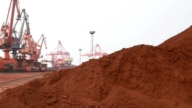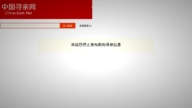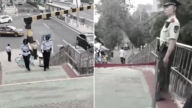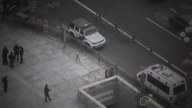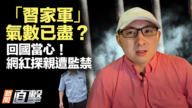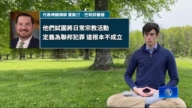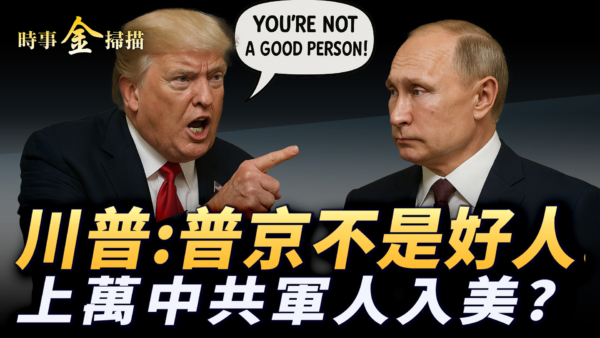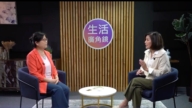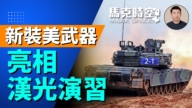【新唐人2013年07月03日讯】近日有媒体引述中共中央党校主办的《学习时报》副编审邓聿文的观点,认为中共总书记习近平任期内至少会有两次剧烈的社会运动发生,还有可能倒逼高层开启真正的民主化进程。但外界评论指出,中共能维系10年是假命题,目前危机四伏的中共政权随时可能倒台。
邓聿文认为,习近平的任期内虽不至于爆发类似“八九学潮”那样的运动,但是至少会有两次剧烈的危机发生:一次是在未来4到5年,会发生一次中等程度的社会危机。如果这次危机过后没有任何改变,在习任期的末尾与下一届领导人交接班时,还会有一次更大规模的社会动荡。他还认为,农民工和失业大学生将成为社会动荡的主要群体。
邓聿文表示,爆发大规模社会运动的重要前提是中共党内出现类似赵紫阳、胡耀邦这样的反对派。在这种前提下,一种可能是反对派被当局压制下去,短暂的和平可能换来未来更剧烈的动荡﹔另一种是在反对派的倒逼下,中共真正开启民主化的进程。
纽约民主大学校长唐柏侨分析,中共目前危机重重,新疆、西藏以及大陆民众维权抗暴此起彼伏,哪一件都危及中共政权。唐伯侨认为,说中共5年、10年才有危机,与事实不符。
民主大学校长唐柏侨:“中共的人,它的智囊其实已经知道可能他们熬不过3、5年了,但是它会假惺惺的说10年以后中共会有什么危机。人们接受它的观点的话,说中共至少10年之内它不会倒台,还会维持现有的这个体制,这种道理一定要警惕。因为无论从哪个角度讲,中共都没有10年的寿命,几乎是毫无疑问的。”
唐柏侨指出,只有一些迂腐的中共学者会认为中共还能维持超过10年,但也有一些认识到中共时间不多了的学者,反而会故意给老百姓放烟幕弹,弱化中共危机。
中国知名历史学者章立凡也不赞同邓聿文对未来社会运动发生时间的预测,他认为在经济崩溃时,任何一个偶发事件都会促生大的动荡。
章立凡向《德国之声》指出,如果经济出现滑坡,中共合法性的问题就会出来。现在已经开始出现‘货币问题’、就业问题等。目前经济增长已经找不到亮点了,如果强行推行城镇化政策的话,有可能会出现对农民的新一轮掠夺,就会出现更大的问题。
旅美政治评论家陈破空表示,目前中国几百个城市已经出现工业产能严重过剩、楼房大量空置、火车站、机场和购物中心闲置等问题,而新一轮的城市化建设会带来像强行拆迁、赔偿不公、耕地流失、粮食日益依赖进口、城市失业率猛增、民众汹涌抗议等很多问题。
旅美政治评论家陈破空:“盲目和重复建设,在‘城市化’的名义下,恶性循环,还积累出日趋严重的债务危机。据中国国家审计署公布的审计结果(2013年6月):36个地方政府,债务合计近3.85万亿人民币,其中,16个地区债务率超100%,债务率最高达219%。地方政府濒临破产边缘。”
陈破空认为,中国经济积累形成了三大泡沫:房市泡沫,债务泡沫,贸易泡沫,已经酝酿着严重的经济危机。
时事评论员邢天行:“经济现在已经到了崩溃的边缘上。大规模的、剧烈的社会运动是不可避免是要发生的。在这样一种中共不肯修正它既有的政治体制问题的时候,必然会发生这个问题。”
时事评论员刑天行表示,中国当前的全面社会危机和愈演愈烈的天灾人祸,与历史上每次改朝换代时是相似的,甚至有过之而无不及。只要中共恶政持续下去,就会不可避免的重蹈历史覆辙。
采访/陈汉 编辑/宋风 后制王明宇
Two Crises of Xi’s Administration
Recently, some media quoted the view of Deng Yuwen,
the deputy editor of Study Times, sponsored by Chinese
Communist Party (CCP) Central Party School,
that the CCP General Secretary Xi Jinping
will have at least two violent social movements,
which may ultimately force the high level
CCP to begin the process of democratization.
But outsiders commented that it is a false proposition
that the CCP will be able to maintain itself for 10 years,
and the current crisis-ridden Communist regime
might fall at any time.
Deng believes that during Xi’s term, although it is
unlikely a movement similar to ‘6-4’ event will erupt,
there will be two severe crises.
In the next four to five years, a moderate degree
of social crisis may happen.
If there is no change after this crisis,
at the end of Xi’s term,
there will be even more massive social unrest during
the succession of the next generation of leaders.
He also believes migrant workers and unemployed college
students will become the main groups of social unrest.
Deng Yuwen said that the important prerequisite
of a large-scale social movement outbreak is that
an opposing group appears within the CCP,
like Zhao Ziyang and Hu Yaobang.
In this context, a possibility is the opposing group
would be suppressed by authorities,
and be offered short-term peace in exchange
for more intense turbulence in the future;
another is under the threat of the opposition, the CCP
can truly open the process of democratization.
President Tang Baiqiao of New York Democracy University
analyzed that the CCP currently has many crises on their hands.
People rise up to protect their own rights one after another
in Xinjiang, Tibet, as well as in Mainland, any of which could threaten the regime.
Tang Boqiao believes that it is not true to say that
the CCP will only have crises in five or ten years.
Tang Boqiao: “The CCP, its think tank, actually has already known
that the CCP could not survive the next three to five years.
But they hypocritically talk about the CCP might
have crises in 10 years.
If people accept its view, the view that the CCP will exist
for at least 10 years, the existing system will be maintained.
We should be vigilant. No matter from any perspective,
there is no doubt that the CCP cannot last 10 more years.”
Tang Boqiao pointed out that only some pedantic scholars
would say that the CCP is able to maintain itself for more than 10 years.
Some scholars know the CCP is dying, but still deliberately
show a smoke screen to the people, weakening the CCP crisis.
Well known Chinese historian Zhang Lifan will not endorse
Deng’s predictive timeline of future social movements.
In his opinion, when economic collapse occurs,
any episodic event will cause great turbulence.
Zhang Lifan pointed out for Deutsche Welle that
if the CCP has an economic downturn,
questions of the legality of the CCP will emerge.
Now currency issues and employment issues are emerging.
In the current economic growth, no good news
has been heard.
If implementing urbanization policies are forced, there may
be a new round of looting on farmers, causing bigger problems.
Political commentator Chen Pokong in the US said that
at present, in hundreds of Chinese cities,
due to seriously excessive industrial production,
a large number of vacant buildings, railway stations,
airports and shopping malls are idle.
A new round of urban construction will bring many issues,
like forced demolition, unjust compensation,
arable land loss, increasing dependence on grain imports,
soaring urban unemployment, and public protests.
Chen Pokong: “Blind and redundant construction
in the name of urbanization has caused a vicious cycle,
and accumulated a worsening debt crisis.
According to the results published by China
National Audit Office in June 2013,
36 local governments have a total debt
of nearly 3.85 trillion yuan,
of which 16 regions have a debt ratio over 100%,
with the highest debt ratio up to 219%.
Local government is on the verge of bankruptcy.”
Chen Pokong said that China’s economic bubbles
had formed, including the housing bubble, debt bubble,
trade bubble, which has been brewing for a serious
economic crisis.
Commentator Xing Tianxing:
“The economy is now on the brink of collapse.
Massive and violent social movement is inevitable.
When the CCP refuses to fix its political system,
these problems are bound to appear."
Commentator Xing Tianxing said that
China’s current overall social crisis and intensified
natural disasters are similar to those in history when the regime changed, or even greater.
As long as the CCP bad governance continues,
it will inevitably repeat mistakes in history.


